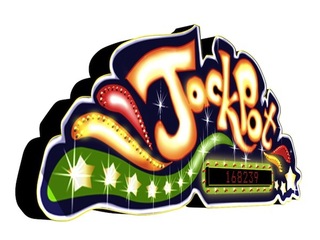DUOS expands AI capabilities to help seniors apply for assistance programs
It will complete and submit forms, and integrate with state benefit systems
Read more...
Why pack your overnight bag and head to Vegas, when a poker table could be just a click away? The social gaming giant, Zynga seems to be gearing up to expand its Casino-esque games into the real money market of online gambling.
Zynga has confirmed, to All Things D, that the company is exploring traditional online gambling compared to the virtual goods and freemium model that they have capitalized on.
Zynga Poker, alone, attract more than 7 million people every day and over 30 million each month. Many of these players would love to get a return on their recreational gambling in the gaming world if they could -- and Zynga would love to prove to investors that it can vary its revenue model from the Facebook virtual good-based focus it has had for a handful of years.
The San Francisco gaming company debuted it IPO a few months ago (NASDAQ: ZNGA) under a lot of scrutiny and has failed to break through its initial $10 opening. The company was trading on Friday near $9.
Much of the criticism for the 100 million share debut comes from the small percentage of Zynga users that translate to revenue -- close to 3%. Analysts have estimated that Zynga's revenue next year at $1.5 billion.
Since more than 90% of Zynga's revenue comes from Facebook, company CEO Mark Pincus has come out to the public and claimed that the company is in the works to double the number of paying players in its community -- but he conveniently failed to mention the timeline that this would happen in.
Online gambling might be a major factor in doubling the company revenue and reducing the Facebook dependance.

Zynga has seen growth in its annual revenue from $19.4 million in 2008 to $597.5 million in 2010. Even the first nine months of 2011, the company saw the continued growth, but at a slowing pace, when the company generated revenue of $828.9 million.
Even now that Zynga has confirmed its perusal of online gambling, any debut would be months, if not, a year away since there are multiple state, national inter nation regulations that will have to be organized.
Over the Christmas break, the Obama administration’s Justice Department also opened another door that got gaming companies toasting their eggnog -- it ruled in December that online gambling was legal, as long as it was not sports-related, which was specifically prohibited in prior law.
This ruling reversed a long interpretation that federal gambling law extended to Internet gambling.
Zynga will have to secure the various licenses and increase gaming security for such an endeavor -- which could also spell some future partnerships with privacy, security and e-commerce companies in the space (and possibly acquisition of a small or medium-sized online gambling company that it could absorb quickly.)
Some companies that would be within the Zynga reach include Bwin, Betfair, and 888.com.
Earlier this month, the gambling-machine manufacturer IGT agreed to buy Double Down, which runs a casino-style game on Facebook, for $500 million as preparation to any possible online gambling efforts.
Double Down Interactive is considered the No. 4 game on Facebook, after having launched not even two years ago.
By the end of last year, the Seattle-based casino-style social gaming company, which attracts a mostly female demographic, according to market research firm Inside Social Games, started attracting 1.4 million active daily players. On a monthly basis, it has some 4.7 million people playing games in its virtual casino, up from 3.3 million in October.
While those numbers don't compare to Zynga's Texas Hold'em (about 6.7 million daily active users, and nearly 30 million monthly active users, according to AppData), Double Down appears to be making a mint in revenue.
It's reported by AllThingsD to be making $140,000 a day in revenue. That's about $50 million a year.
Even Facebook wants in on the gambling action, as we reported over the holidays when an industry report stated that the social network was in talks with "several operators to open its platform to real-money gambling in the UK."
The timeline for such an endeavor is unknown as of yet, but the company has been in talks about ways to translate the social gaming and credit system into a real money maker.
Zynga has the clout and audience to make such an online gaming move, very profitable since it was one of the first online gaming companies on Facebook and continues to house the top downloaded apps on Facebook and iOS.
Back in October, Zynga first started showing broad interest in the casino category, especially in the U.K. where the regulation is less arduous than the U.S..
In October, Zynga announced at a press event that it would launch Zynga Casino, and add a Zynga Bingo to its already popular Zynga Poker game.
If Zynga is able to tackle the paperwork necessary to make online gambling a part of its social gaming business, it will not only offer its users more than just entertainment for the payment of virtual goods -- but the possibility to rake in some extra dollars.
(Image Source: Wallpaperweb.org)
It will complete and submit forms, and integrate with state benefit systems
Read more...The bill would require a report on how these industries use AI to valuate homes and underwrite loans
Read more...The artists wrote an open letter accusing OpenAI of misleading and using them
Read more...Startup/Business
Joined Vator on
Zynga is the largest social gaming company with 8.5 million daily users and 45 million monthly users. Zynga’s games are available on Facebook, MySpace, Bebo, Hi5, Friendster, Yahoo! and the iPhone, and include Texas Hold’Em Poker, Mafia Wars, YoVille, Vampires, Street Racing, Scramble and Word Twist. The company is funded by Kleiner Perkins Caufield & Byers, IVP, Union Square Ventures, Foundry Group, Avalon Ventures, Pilot Group, Reid Hoffman and Peter Thiel. Zynga is headquartered at the Chip Factory in San Francisco. For more information, please visit www.zynga.com.

Joined Vator on





